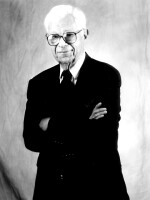MELISSA BLOCK, host:
From NPR News, this is ALL THINGS CONSIDERED. I'm Melissa Block.
ROBERT SIEGEL, host:
And I'm Robert Siegel.
Russian troops occupied a military base in western Georgia today as they continued their assault on the former Soviet republic. Diplomatic efforts to halt the fighting have so far come to nothing. And there is no sign of military support for Georgia from the international community.
NPR's senior news analyst Daniel Schorr says Georgia's plight is all too familiar.
DANIEL SCHORR: Marching through Georgia, the Russian army's providing the latest example in history of the failure of great powers to support little countries when the chips are down.
The New York Times quotes a Georgian soldier, his face a mask of exhaustion, asking, where are our friends? His friends were where the western friends of Czechoslovakia were in 1938 when Hitler's armies marched into Czechoslovakia allegedly to free the Sudeten Germans. Or where the West was in 1939 when Hitler invaded Poland allegedly to liberate Danzig. Or where the United States was in 1956 when Hungarians were encouraged to rise up against Soviet control only to be crushed by Soviet forces.
President Bush has had a special place in his heart for Georgia. On a visit to Tbilisi three years ago, he was honored by having the airport road named for him, and his portraits were posted around the country. But friendship with President Mikhail Saakashvili didn't help very much when Russian forces swept into Georgia nominally in support of minorities in two pro-Russian enclaves.
Soon, the Russian tanks were deployed in the heart of Georgia far past these enclaves, and a desperate President Saakashvili was appealing to allies - read: United States - for something more than moral support.
The intention of the Putin-Medvedev regime is clear enough. Ever since the Soviet Union collapsed in 1989, the Russians have been intent on dominating what they call the near abroad, that is former republics and satellites that the Russians regard as key to Russia's defense. If that requires regime change in a country like Georgia, the Russians have no compunctions. [POST-BROADCAST CORRECTION: The Soviet Union collapsed in 1991.]
President Bush told Putin that his invasion was disproportionate, likely to have a long-term effect on Russian-American relations. The Russians sitting on their vast oil reserves seem to be not too concerned.
This is Daniel Schorr. Transcript provided by NPR, Copyright NPR.






